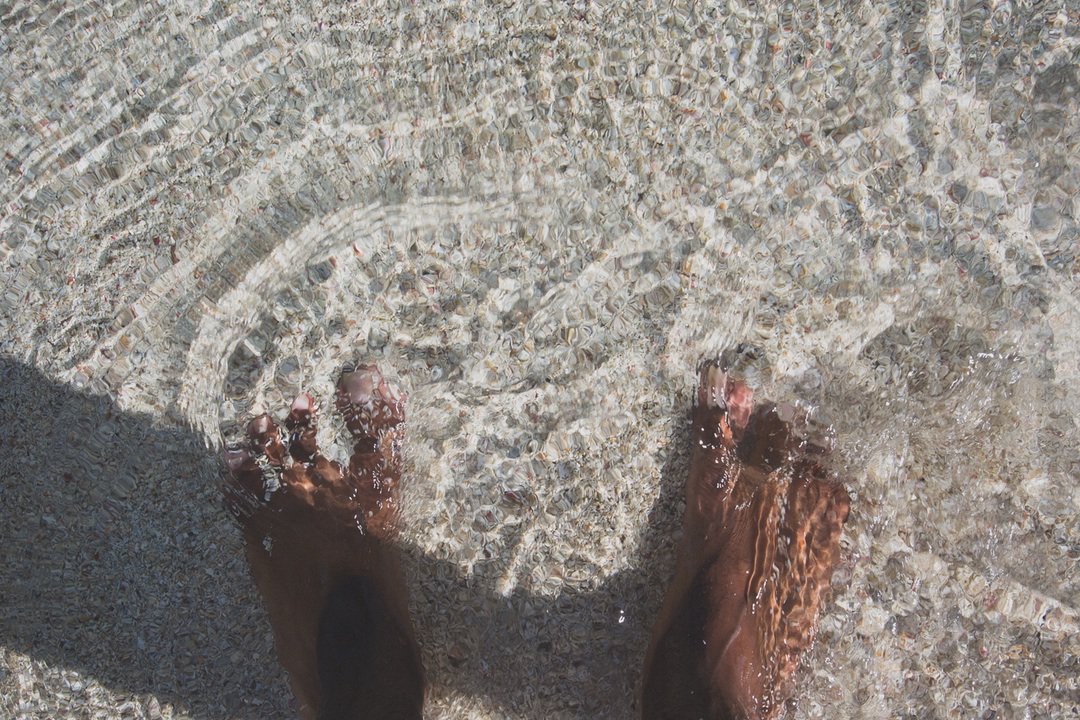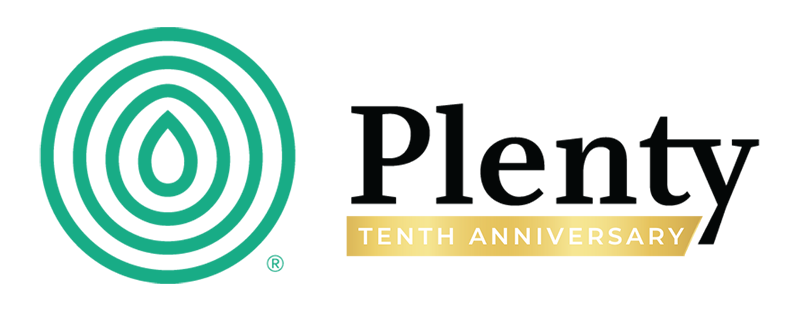Maintaining Your Wellbeing & Idealism in Uncertain Times
Events of the last three months have left many people feeling hopeless and unsure of how to tackle the massive and interconnected challenges facing the United States, and subsequently, the world. But at Plenty, we understand that we cannot let the gravity of the present keep us from impacting the future – a future that we believe is filled with light, abundance, community, and collaboration. We recognize that while it feels like hope needs more help than ever before, it also feels like there are more idealists taking action than ever before too.
I hear you though – adopting this perspective is sometimes easier said than done.
It is in this spirit that I want to share tips on how to nurture your wellbeing and mental health as you simultaneously maneuver the often intense, dark, and tumultuous political climate via your activism, idealism, and hope.
1. Recognize that there is a difference between being immersed and being informed.
This is something I struggle with personally, and it was pivotal for me to make the distinction when I found this article a few days ago. Ann Douglas writes, “Sure, you want to be aware of what's happening in the world, but that doesn't mean that you have to be plugged into your Twitter or Facebook feed 24/7. Give yourself permission to take breaks. And aim for a balanced media diet.”
I want to be clear: this does not mean ignoring the news. Ignorance won’t serve you because it can create isolation, and it won’t aid your impact on the future. This does however mean that you should give yourself permission to let go of any guilt you may harbor when you take time to unplug and restore yourself.
2. Strive for balance between optimism and vigilance.
You and me? We’re idealists, and we aren’t going to let challenges change that. Hope is hard sometimes, but I’m striving to choose optimism when I can. We will not create a more loving, more inclusive, and more unified world if we do not believe that it is possible. Choose optimism.
Simultaneously, it’s crucial that we don’t allow hate to be normalized or internalized. While it may seem unimaginable now, it’s possible – even expected – that many of us will grow accustomed to the volatility. Thus, rejecting what doesn’t align with your values likely isn’t going to get easier as we move forward. Take steps to prevent normalization by being diligent about checking in with yourself and your values. Choose vigilance.
 3. Take care of the basics, with an emphasis on self-care.
3. Take care of the basics, with an emphasis on self-care.
In order to maintain our wellbeing in uncertain times, it’s important that we don’t let our basic needs fall through the cracks. Felix at LifeNGoal shares their Mental Health 101 regarding why mental health need to be our priority. Instructing us to build a strong foundation for ourselves by going to therapy, getting enough sleep, going to the doctor, exercising, spending time with friends, and more. Ensuring that our basic needs are met will help curb the sense that our lives are completely out of control in times of uncertainty, which can affect how we recognize the agency and power we hold as individuals.
Further, my normal routine already includes self-care (and yours should, too), but it’s especially essential during difficult times. Be sure your self-care methods are effective, calming, and restorative. Some of what works for me includes getting outside, cooking, and learning a new skill (the flavor of the month is embroidery!) What works for you may be different, so take time to explore your options.
4. Do something.
At Plenty, we’re challenging ourselves and want to challenge you to do something to impact our collective future each day. Not only will consistent acts add up to impact on a community level, but they will also leave you feeling more powerful and more engaged.
Be sure that you’re taking action within your “sweet spot.” Challenge and push yourself to engage with the movement for good in a meaningful way that may stretch your comfort zone, but also understand what doesn’t work for you. Personally, I typically do not attend demonstrations or protests – not because I don’t believe that they are effective or necessary – but because I am highly susceptible to panic attacks because of my anxiety disorder. A protester in a mental health crisis is not an effective protester.
Here are some ideas to get you started:
- Stay informed. By spending time each day becoming informed, you’ll know when you need to respond to bills, votes, and other political and social maneuvers that matter to you. Seek out *independent media to minimize bias.
- Talk to your lawmakers. Whether you write letters, call, or show up in person, you hold power as a constituent. Find out how here.
- Protest. History tells us that protests work. They build movements and they influence policy. Although important, this isn’t limited to feet on the streets – you can also protest with your dollars.
- Give. The forces for good must be well-resourced. Do some research to find organizations and initiatives who are organizing and advocating for the change you’d like to see, and donate what you can.
- Foster community. Change is made through unity, and the political structures and societal institutions around us are often not designed to create unity. Create it anyway: share your opinions, listen to others, and host gatherings to provide support and nourish those in your networks.
- Get creative. Allow yourself to think out of the box. The opportunities are endless, but here are a couple of the ideas I’ve had: Offer transportation or childcare to friends who want to participate in demonstrations and protests. Be alert and on call in case friends who are protesting need help. Call an old friend and ask how they’re doing. Bake cookies to nourish those who might need a push to take care of themselves. Have other ideas? Leave them in the comments below!
Self-care is just as important as action – and both are extremely important in times like these. When I start to sense guilt or feel like I’m not doing enough, I remind myself of Audre Lorde’s words, “Caring for myself is not self-indulgence, it is self-preservation, and that is an act of political warfare.”
And then, I do more. Join me.
*Independent media refers to any form of media, such as radio, television, newspapers or the Internet, that is free of influence by government or corporate interests. The term has varied applications.
Share this
You May Also Like
These Related Stories

Prioritizing Your Own Wellbeing

The Secret to Saving the World



Comments (1)